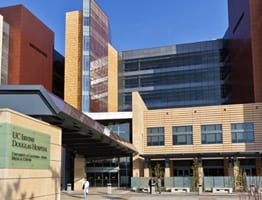
Recommendations for Pediatric Throat Surgery
Throat illnesses and conditions can afflict patients of any age. However, children are often at a greater risk of certain throat diseases because of their immature immune systems and also exposure to germs at school, camp, and other public places. When home and over-the-counter remedies have little to no impact on helping your child heal from throat conditions like tonsillitis, strep, sleep apnea, and swollen adenoids, it may be time to have your son or daughter undergo pediatric throat surgery.
What is Pediatric Throat Surgery?
As its name implies, pediatric throat surgery is a surgical procedure designed for and performed on patients under the age of 18. The surgery that your own child undergoes can be relatively minor and minimally invasive. It can also be rather extensive and require an overnight stay in the hospital.
Some of the primary pediatric conditions treated with throat surgery for children include:
- Tonsillitis
- Chronic strep infections
- Swollen adenoids
- Benign or malignant tumors in the throat
- Chronic pus pockets or tonsil stones
- Sleep apnea
The type of surgery that your own child will undergo will depend on the diagnosis of the throat condition as well as the recommendations of your son or daughter’s ENT surgeon.
Who is a Good Candidate for Pediatric Throat Surgery?
Pediatric throat surgery is typically reserved for children under the age of 18 who are in good overall health. Your child will be closely examined by the ENT surgeon. You also may be required to have your child examined by his or her primary care pediatrician prior to the operation.
This thorough pre-operative examination ensures that your child does not suffer from any illness or injury that could put him or her at risk during or after the surgery. Some of the conditions that could prevent your child from going through the surgery include:
- Chronic asthma
- Anemia
- High blood pressure
- Heart disease
- Kidney, liver, or other major organ
- Hemophilia
Otherwise, if your child does not suffer from any of these illnesses, he or she can undergo pediatric throat surgery and should be able to recover well from the operation.
What to Expect During the Surgery
As a parent, it is nerve wracking to entrust the care of your child to even the most qualified of surgeons. Still, you may have better peace of mind by knowing what will occur during the operation.
Your child will likely be sedated and put to sleep during the surgery. Sedation ensures that your child stays still and calm while the surgeon performs the operation.
The surgeon may also use laser technology or traditional surgical instruments like scalpels to remove the tonsils or adenoids or work on other tissues that contribute to your child’s throat condition. Depending on the invasive nature of the operation, your son or daughter may have stitches in his or her throat to close off the incision and prevent infection during the recovery period.
Recovery
Most children recover quickly with few complications from pediatric throat surgery. Still, you should know what warning signs to look out for as your son or daughter heals. Your doctor will want you to contact him or her if your child exhibits post-operative signs like:
- High fever
- Uncontrollable bleeding
- Difficulty waking or staying awake
- Excessive vomiting or diarrhea
- Allergic reactions like hives, difficulty breathing, or swelling of the throat
If your child does not exhibit signs of complications, it is still important for you to follow your doctor’s post-operative care instructions and to keep any post-op appointments with the surgeon. You may be encouraged to give your child pediatric pain reliever for pain and mild fevers.
You should also ensure that your son or daughter stays hydrated during the recovery period, which can last for seven to 10 days depending on the surgery that was performed. Your child should be kept out of school until the doctor clears him or her to return.









